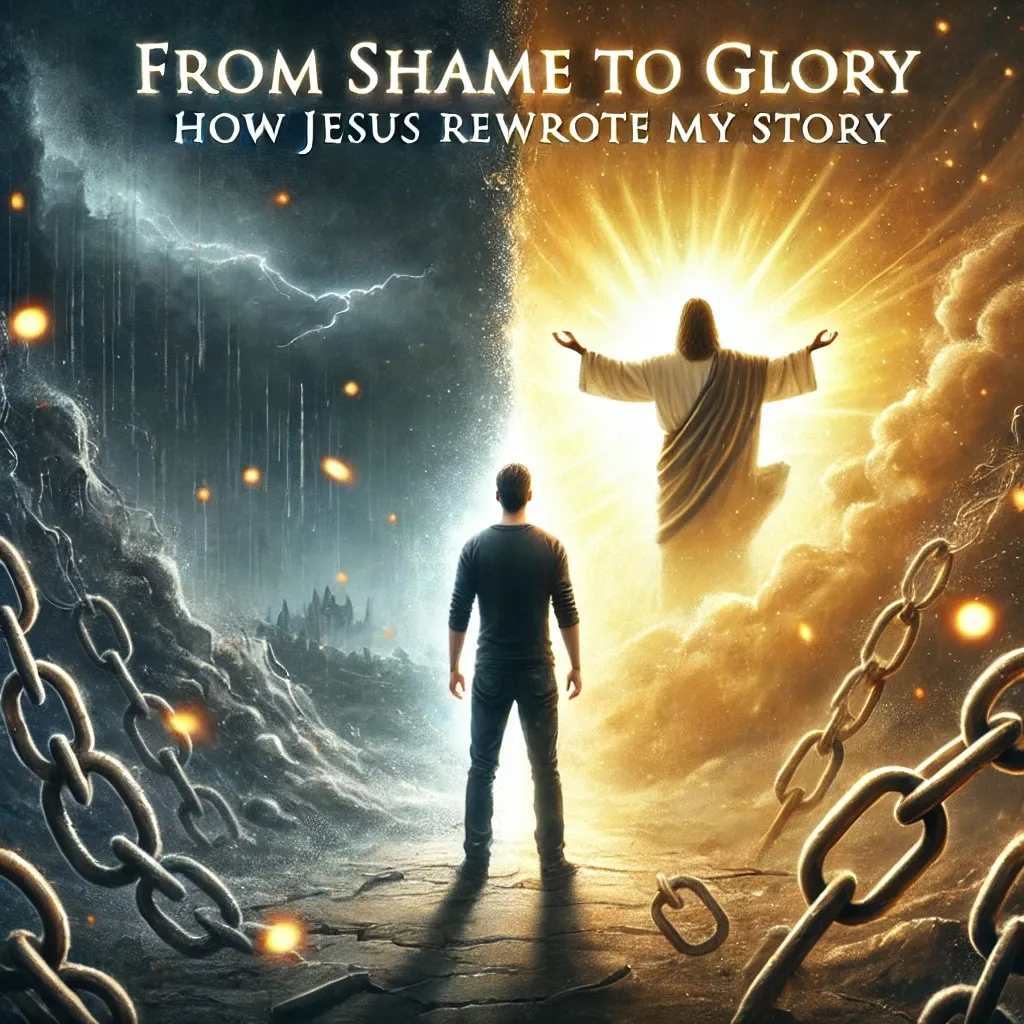

By Dr. Tim Orr
Shame isn’t just an emotion—it’s a prison. It’s a relentless voice whispering, You are unworthy. You are defective. You are a mistake. And when you hear something often enough, you start to believe it.
I believed it.
For years, shame wasn’t just something I felt; it was the air I breathed, the foundation on which I built my identity. I didn’t just feel worthless—I knew I was. At least, that’s what my life seemed to confirm at every turn.
Shame From the Start
I was born with birth defects that altered my face, marking me as different before I could even understand what that meant. From as early as I can remember, hospitals were my second home. By the time I reached adulthood, I had undergone 20 surgeries. Each one left me more swollen, more bruised, more convinced that I was a grotesque mistake.
I can still remember coming home after each operation, avoiding mirrors, dreading the moment someone would flinch at the sight of me. I would try to pretend it didn’t bother me, but deep down, I wondered if I would ever be normal—if I would ever be loved.
Then there was my father.
He was an alcoholic, and alcohol has a way of loosening the tongue. I remember his words clearly because they cut so deep:
"I wish I never had you."
It wasn’t just once. It wasn’t said in a moment of fleeting anger. It was repeated, like a verdict spoken over my life. And if your own father regrets your existence, what does that say about your worth?
I spent my childhood absorbing that message, carrying it like a weight on my back.
Then, when I was 15, my father walked out of my life for good.
So did my stepfather.
Two men—both supposed to be father figures—left me in the same year. Abandonment wasn’t just something that happened to me; it became the lens through which I saw the world.
 GodTube.com
GodTube.com
Running to Numb the Pain
By the time I was a teenager, I had found my way to alcohol. It was the only thing that silenced the shame, at least for a little while.
When I drank, I didn’t feel defective.
When I drank, I didn’t feel abandoned.
When I drank, I didn’t feel like a mistake.
But as soon as I sobered up, the voices returned.
And so did the other reminders of my worthlessness.
I was poor—so poor that when other kids drove their cars to school, I was still riding the bus. I told myself that I was white trash, a nothing, someone destined to struggle and scrape by forever.
And if that weren’t enough, I was stupid too.
I barely made it through school, graduating near the very bottom of my class. I remember looking at my diploma and thinking, "Well, that settles it. I really am worthless."
Shame doesn’t always shout. Sometimes, it just sits there, quiet and familiar, like an old friend who never leaves.
The Moment Jesus Found Me
I was 21 when Jesus stepped into my story.
I wasn’t looking for Him. I wasn’t trying to fix myself. I had no reason to believe that my life would ever be different. But He found me anyway.
At first, I thought Christianity was just about forgiveness. And sure, I knew I needed that—I had messed up in more ways than I could count.
But what I didn’t understand was that Jesus doesn’t just forgive. He heals.
In his lecture on shame, Ed Welch describes how, before the fall, Adam and Eve were naked and felt no shame. But the moment sin entered the world, they hid. They covered themselves.
That’s what shame does. It makes us hide.
And yet, God’s first act of grace was not to scold them or tell them to do better—but to cover them. He replaced their flimsy fig leaves with garments.
I began to see this pattern throughout Scripture. God is constantly reaching out to the outcast, lifting the heads of the shamed, and calling the rejected beloved.
He was reaching for me, too.
Jesus Rewrote My Story
The lies that shame had written over my life began to unravel.
- I thought I was disgusting. But Jesus says I am fearfully and wonderfully made (Psalm 139:14).
- I thought I was unwanted. But Jesus says I am chosen (Ephesians 1:4).
- I thought I had been abandoned. But Jesus says He will never leave or forsake me (Hebrews 13:5).
- I thought I was worthless. But Jesus says I am bought with a price (1 Corinthians 6:20).
- I thought I was stupid. But Jesus says I have the mind of Christ (1 Corinthians 2:16).
Ed Welch describes shame as being exposed, contaminated, and unwanted. And yet, time and again, Jesus does for us what we cannot do for ourselves:
He covers us. Isaiah 61:10 says, "He has clothed me with garments of salvation and arrayed me in a robe of His righteousness."
He includes us. Hosea 2:23 says, "I will say to those called ‘Not my people,’ ‘You are my people’; and they will say, ‘You are my God.’"
He cleanses us. The woman with the issue of blood in Luke 8 felt unclean. But when she touched Jesus, He didn’t recoil—He healed her.
That’s what Jesus did for me.
I thought I was too broken. Too scarred. Too ruined. But Jesus touched my life, and everything changed.
An Invitation for You
Maybe you know that feeling, too.
Maybe you’ve been carrying shame for so long that you no longer question it. Maybe you’ve built your whole life around trying to outrun, hide, and numb it.
But let me tell you—shame is a liar.
Jesus doesn’t just forgive sins. He heals shame. He doesn’t just wipe away the past—He writes a new future.
And the best part? You don’t have to fix yourself first. You don’t have to clean up your mess before you come to Him.
You just have to come.
Shame told me my story was set in stone. Jesus rewrote it.
And He can rewrite yours, too.
Will you let Him?
Tim Orr is a scholar of Islam, Evangelical minister, conference speaker, and interfaith consultant with over 30 years of experience in cross-cultural ministry. He holds six degrees, including a master’s in Islamic studies from the Islamic College in London. Tim taught Religious Studies for 15 years at Indiana University Columbus and is now a Congregations and Polarization Project research associate at the Center for the Study of Religion and American Culture at Indiana University Indianapolis. He has spoken at universities, including Oxford University, Imperial College London, the University of Tehran, Islamic College London, and mosques throughout the U.K. His research focuses on American Evangelicalism, Islamic antisemitism, and Islamic feminism, and he has published widely, including articles in Islamic peer-reviewed journals and three books.
